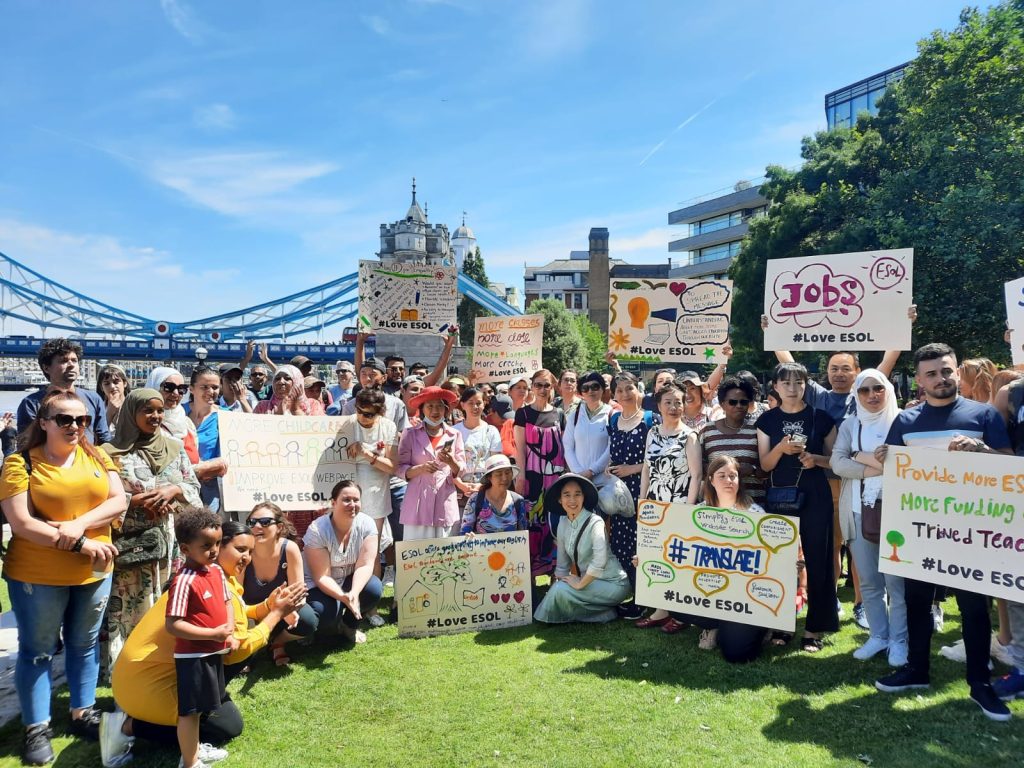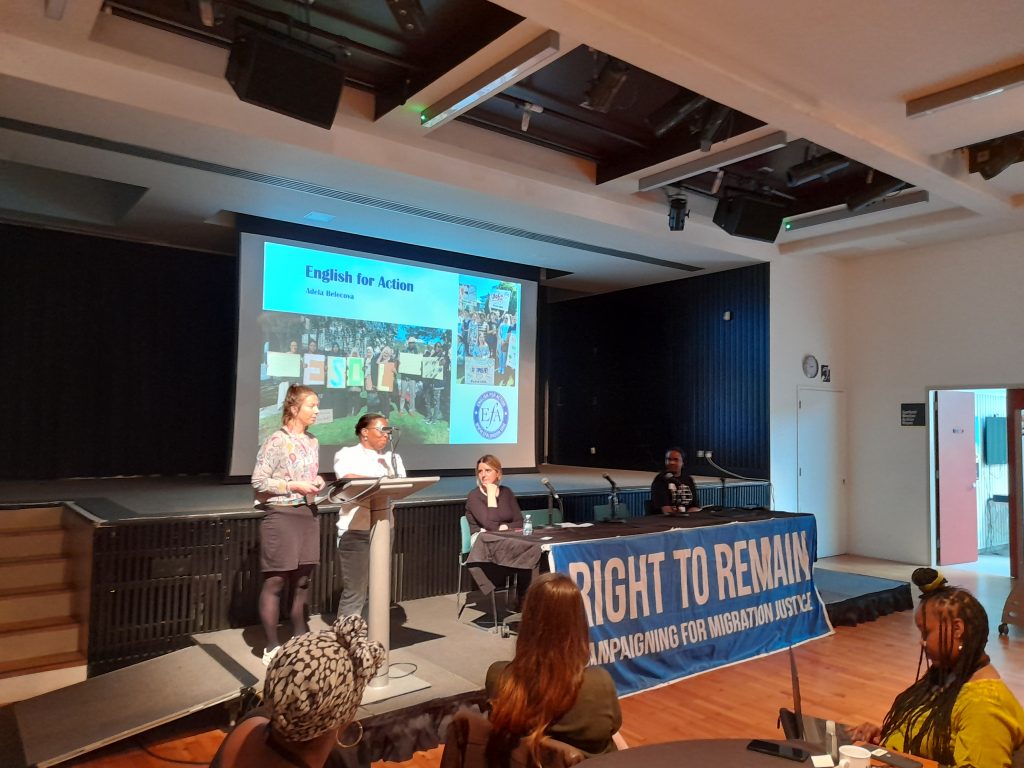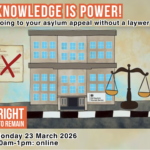At Right to Remain, we are gearing up to become a lead cheerleader for radical solidarity. We have been working hard to connect with small grassroots groups, especially those who use our resources, attend our workshops and share their campaigns with us. These grassroots groups are an embodiment of radical solidarity – they provide all of us us with hope and energy. In this series, we are raising the profile of such groups, to learn from each other.
English for Action are a charity that provide free, empowering English language classes for migrants in London. But their work does not stop at English classes – they also campaign on issues affecting migrants and, crucially, engage in community organising to do something about them.
When members of the team joined us at our London Toolkit Festival a couple of months ago, we were motivated by their powerful work. Paula, a campaigner, joined Adela, a staff member, to share her experience using the English language skills she had learnt through English for Action. The audience could see and feel how empowered and supported Paula felt with English for Action. There was also a huge noise of appreciation and excitement from the audience when we found out that we had the privilege of listening to Paula’s first ever public speaking engagement!
We spoke with Adela Belecova, a teacher and organiser at English for Action, who gave us more insight into how they incorporate radical solidarity into their work. The team at English for Action use an interesting approach to learning the English language:
“The purpose is for us to come together with migrants and learn about the country we live in, the way different systems and institutions work, and also to take action. In our classes, we use different tools and activities, which enable us to understand our students and what their lives are like.”
“There is no set curriculum, which is different to traditional language teaching. The content of the lessons is based on our class, and is quite open-ended. We might be exploring different themes, people’s thoughts, and link this with community organising. Our staff have both of these skills: teaching the language but also the organising skill of bringing people together. We can work with our students to build knowledge around themes like housing, workers’ rights or immigration related matters. This way we can take action and collaborate with other organisations doing this.”
Adela provides us with an example of how English for Action make intentional choices about what they teach in their classrooms. “We use pedagogy from a Brazilian educator, Paulo Freire . Instead of nonsensical things such as “Roger gave green grass to the rabbit”, which are not connected to reality, we use an activity called Identity Pizza, that tell us about the students, who they are and their issues. Accuracy, grammar or error correction is not the forefront of the class, we start with the theme and then language comes after that.”
There is an emphasis on building a community and taking a participatory approach. Adela tells us, “We organise community days, bringing together students and teachers from across the orgnaisation. We share food and continue bringing people closer together.”
By using this approach, English for Action are able to interest students in campaigning for better access to ESOL (English as a second language). “We have working groups where we make banners and think about what demands we can make to mayoral candidates. Some campaigning spaces are inaccessible to migrants, but by listening to each other, we can make these asks.”
So, what does radical solidarity mean for English for Action?
“We are quite a small charity, although we work nationally and train teachers in different parts of the country. We are trying to build a coalition of organisations and individuals who care about ESOL, through LoveESOL, so migrants can access appropriate classes.
For us, it’s really important to be working together with different organisations, because each group has their own speciality and remit. But at the same time, we care about the same things. We care about wanting to make sure we live in a world that is equal, where people have equal access and opportunities and live in good conditions.
For example, we are working with an organisation called Housing Action, who support people with housing. We bring together our students and their housing cases are supported by them. Sometimes, they might organise a protest and English for Action would go. We’re also part of a community organising alliance called Citizens UK, where we come together and think about how we can make a change.
It’s about working together and making relationships in all spheres.”
Although we are pretty sure many of us in this field grew up reading Paulo Freire’s Pedagogy of the Oppressed, if you haven’t, you can find out more about Freire here.
English for Action are hosting a picnic on 22nd July 2023 with the LoveESOL coalition, to connect with the community and reflect on the state of access to ESOL. Sign up here. If you would like more information about the picnic or the campaign, contact adela@efalondon.org
| This blog is part of In search of radical solidarity series. – Right to Remain aspires to be the lead cheerleader for radical solidarity, sparkles of connections that lead to powerful action. Many small grassroots groups who make up our hub – they use our Toolkit, come to our workshops, ask us questions, discuss with us their campaigns, as well as share angers, frustrations and sorrows – they are all embodiments of such radical solidarity. They gift Right to Remain and all of us much needed energy to go on. They are our North Star. This occasional series is an attempt to scatter the seeds of that radical solidarity – because we need to multiply it everywhere. |

















Discussion: